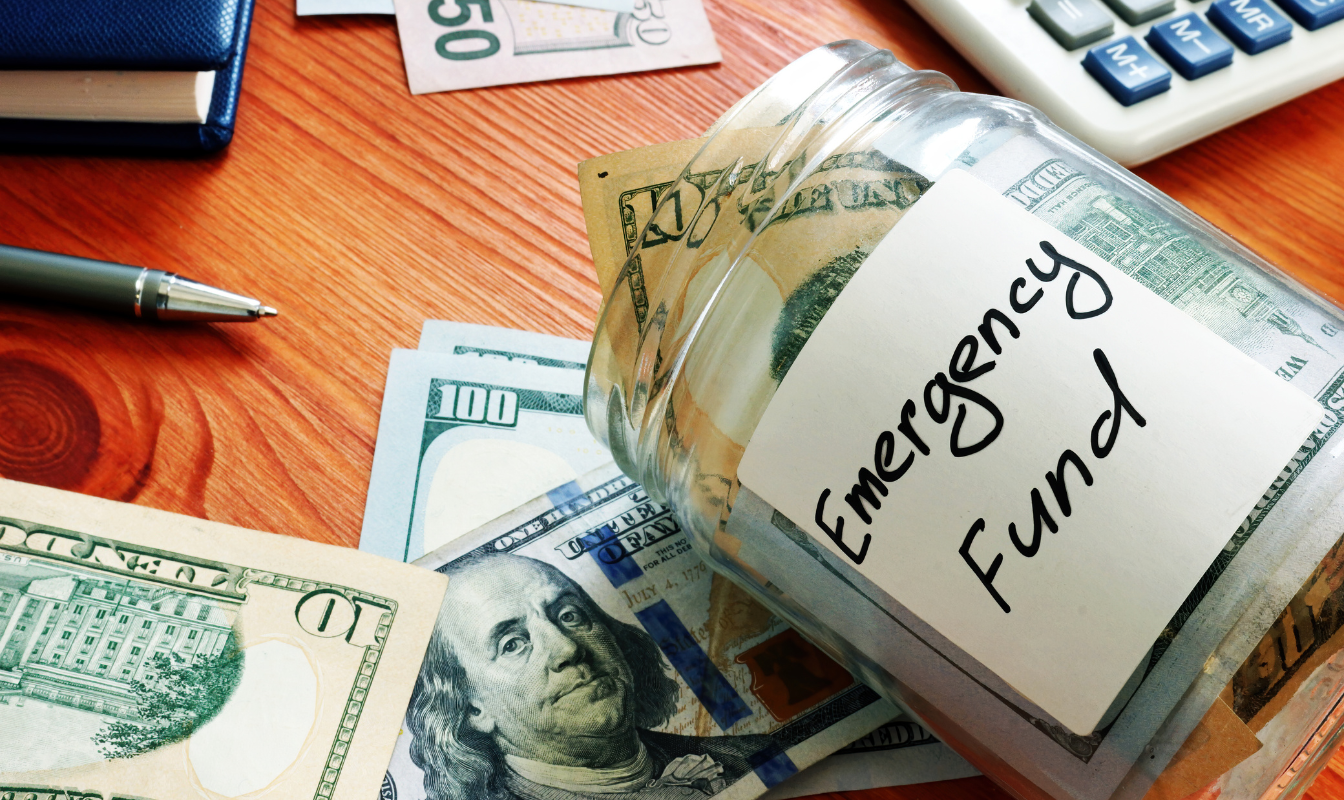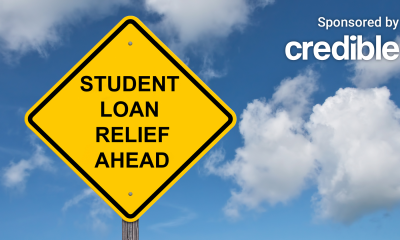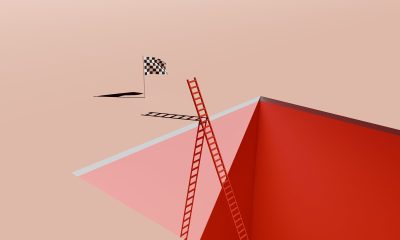Save Money
What is an Emergency Savings Fund? Here’s Everything You Need To Know

So, what exactly is an emergency fund? In simple terms, it’s a stash of money you’ve set aside for unexpected expenses. Emergencies can happen at any time, and it’s important to be prepared instead of relying on credit cards. Having an emergency fund can protect you from accruing debt and can offer peace of mind during unexpected instances.
Now, let’s talk about how much money you should put into your emergency fund. Experts recommend starting with a minimum of $1,000, however, ultimately you should aim for 3-6 months’ worth of living expenses. Think of it as a safety net. This might seem like a daunting number, but trust me, it’s worth it.
To attain such a goal, it’s all about taking baby steps and setting achievable milestones. Start off with a small goal, perhaps saving $500 to $1,000, and gradually increase the amount until you reach your ultimate goal. Celebrate once you reach each milestone, but most importantly, do not dip into your emergency fund unless there is an actual emergency, otherwise, it will depreciate the value and leave you unprepared for future emergencies.
So why is an emergency fund so important? Life is unpredictable and we cannot control every situation. Emergencies such as unexpected car repairs, hospital bills, or even job loss can occur when we least expect it. In such cases, an emergency fund can provide us with the necessary financial support until we get back on our feet. Check out the video below for more information.
Watch the video here:
Video Transcript:
Hi, I’m Melissa. I go by Mel and I’m one of your MoneyNav coaches today we’re talking about why everyone needs an emergency fund so today our video is going to cover: what is an emergency fund, why we need an emergency fund, and some tips to help you either get started or manage your emergency fund.
Okay, so first let’s talk about what is an emergency fund. So, an emergency fund is a bucket of money or a resource where you can access money that you’ve set off to side for emergencies. Some people call them your “Oh my gosh!” moments and so when you have the tires go out unexpectedly, when you have the pet that you love so much unexpectedly get sick or fill in the blank when something happens you have two choices.
You can pull money from your own savings account that you’ve set off to the side which we’re calling an emergency fund or you can put it on a credit card and we want to talk to you about establishing an emergency fund versus doing the credit card because when you go and you put your emergency expenses or these unexpected “Oh my gosh!” moments on credit cards you’re really paying somebody else to borrow that money which then puts you in debt, causes stress and again a lot oftentimes lead into a cycle.
So, an emergency fund again is money that you have set off to the side for emergency expenses or when things arise. How much money should be in an emergency fund? Well, Dave Ramsey used to say that you needed a thousand dollars just to get started, it’s actually one of his baby steps but we now have him saying that he is wrong and if you’re not a Dave Ramsey person that might not seem crazy to you but if you know Dave Ramsey he does not say he’s wrong very often so Dave agrees that a thousand dollars is no longer the minimum amount.
So, what do we need an emergency fund for? Well, I think it’s important to follow Dave’s original train of thought we need to get started somewhere somehow so I would like to start off with setting some goals so if the first goal is just to get 500, a thousand dollars set off to the side that prevents you from reaching for that credit card. That’s a great first step and so we should add that to our goal list maybe that’s your first goal.
The second goal would be to get to one month of expenses, so how much does it cost to run your household each month and that would be your second goal. Having one month of emergency fund expenses so if you are between your rent or your mortgage maybe your car payment and your basic bills that you pay what is that number and maybe that’s your second goal.
Okay, your third goal or you’re ultimately wanting to get to three to six months of living expenses so if it costs you every month, you’re living on let’s say four thousand dollars a month, okay three months worth of expenses you’re going to want twelve thousand dollars set off to the side. Some of you think, whoa you want me to have 12 grand set off to the side that seems like a lot to some of you that’s not a lot of money at all. The importance is that whatever you’re needing you set off to the side and that you start somewhere so again if you need to start off with 500 to a thousand dollars make that your first goal ultimately how much do we need to have into an emergency fund we want to have three to six months of living expenses.
So, one of the things that I like to do is how are we going to come up with whether that first goal is the 500 to a thousand dollars ultimately leading up to that three to six months. It’s important to keep yourself motivated, we as human beings like instant gratification so if you can say okay I’m going to get to that three months of expenses. We’re going to go back to our example of you need four thousand dollars a month and so our goal is twelve thousand. When you reach that goal, it’s really important that you set or reward yourself so do something whether it’s go get a massage or go out to eat at the restaurant you never go to. For whatever reason, set a small reward for yourself to keep yourself motivated so when you accomplish the goal of setting the emergency fund you have something to look forward to and you’re celebrating the accomplishment or the goal that you set to achieve when you achieve it. I think that’s really important and has been super helpful for my clients when we’re setting goals and we feel really good about accomplishing them.
So, how could you start to set money off to the side because right now you might be in a situation where you don’t have an emergency fund so Mel how do I get started? The first thing that you can do is start by redoing your budget or looking at your budget so go through whether it’s your bank statements, physically with paper or on your phone. Go through what you’re spending your money on and what can you cut out to start putting money towards your goal. If you just do a quick budget audit or a spending audit it’s easy to find some money you’re like, oh I didn’t realize I still have that subscription or I didn’t realize grabbing that cup of coffee each morning is adding up maybe I’ll cut down to one day a week so I can put the rest of the money towards my emergency fund. Small things like that will add up over time and will help you get to your goal so really how do you get started in creating that emergency fund? It would be by evaluating the money that you have coming in and what is going out.
I also like to think of this no different than if you are focused on your health and you’re trying to maybe lose some weight for summer. We have to look at calories going into the body versus the calories that we are burning off. Money is the exact same way. We have to look at the money coming in and the money that’s going out the difference is then we want to keep the money in the bucket right and we want to make it go towards our emergency fund.
So, another tip that I’ll give to you on starting an emergency fund or really managing an emergency fund is it’s really important to make sure that you put this money off to the side, separating it from your day-to-day spending so we really want to organize it to where it’s either out of sight out of mind works for a lot of people so this could be a bank account at a different bank, it simply could be a savings account that you’re not looking at all the time on your phone. You can actually hide on some bank apps, you can actually hide your bank accounts so you can’t see them and maybe you’re only looking at that statement if you get a paper statement or electronic statement but that would be another tip that I’ve seen have success with individuals who really just need to have this account out of sight out of mind not really realizing I have 10 grand sitting there or 12 grand sitting there. It feels like, oh we can go on vacation, we know we really want to make sure that we have this money set off to the side of the air conditioner goes out, if something happens to your car you you fill in the blank of what’s happened in the past.
Again we want to make sure that we can reach for money in our savings account or in that separate account versus putting it on a credit card and paying somebody else to borrow that money. When it comes to spending the money that you have set off to the side when you have an emergency happen. Let’s say your tire goes out on your way home from work or on your way home from the grocery store don’t feel guilty or shame yourself for touching that money. That’s what it’s there for sometimes we get really excited about man we made it to our goal and we do have those twelve thousand dollars sitting there and that feels really good and your stress level has changed and so it might feel a little stressful to go and touch that money.
It’s a mental shift that you have to make to say no it’s okay this is why we have it there and we can go and we can use that money then after you have addressed the tire or whatever situation you come across then you can sit down re-go through your budget and decide how am I going to replenish that emergency fund so just if you make a commitment to yourself one if I have an emergency it’s okay to spend this money but then two I commit to myself to replenishing that. That can remove that kind of internal battle that you might face when it comes time to use your emergency fund money so in this video, we really covered why an emergency fund is super important. We gave you how much you really should have set off to the side for an emergency fund and some tips to help you get started and manage your emergency fund. I hope this video has been helpful and we’ll see you next time!
Read the full article here

-

 Side Hustles6 days ago
Side Hustles6 days agoWhy the Best CEOs Think Like Anthropologists
-

 Make Money7 days ago
Make Money7 days agoEarn More in 2025: Top 10 High-Yield Savings Accounts Revealed
-

 Side Hustles4 days ago
Side Hustles4 days agoThis User-Friendly H&R Block Software Package is Only $40, While Supplies Last
-

 Side Hustles7 days ago
Side Hustles7 days ago10 Roles That Are Surprisingly Well-Suited for Outsourcing
-

 Side Hustles7 days ago
Side Hustles7 days agoWhat to Do If TikTok is Banned — How to Protect Your Brand
-

 Passive Income7 days ago
Passive Income7 days agoHow Pets Can Promote Better Health and Well-Being in the Workplace
-

 Investing4 days ago
Investing4 days agoTikTok faces US ban deadline as users brace for fallout By Reuters
-

 Personal Finance7 days ago
Personal Finance7 days agoBiden cancels more student loans with one week left to his term


















